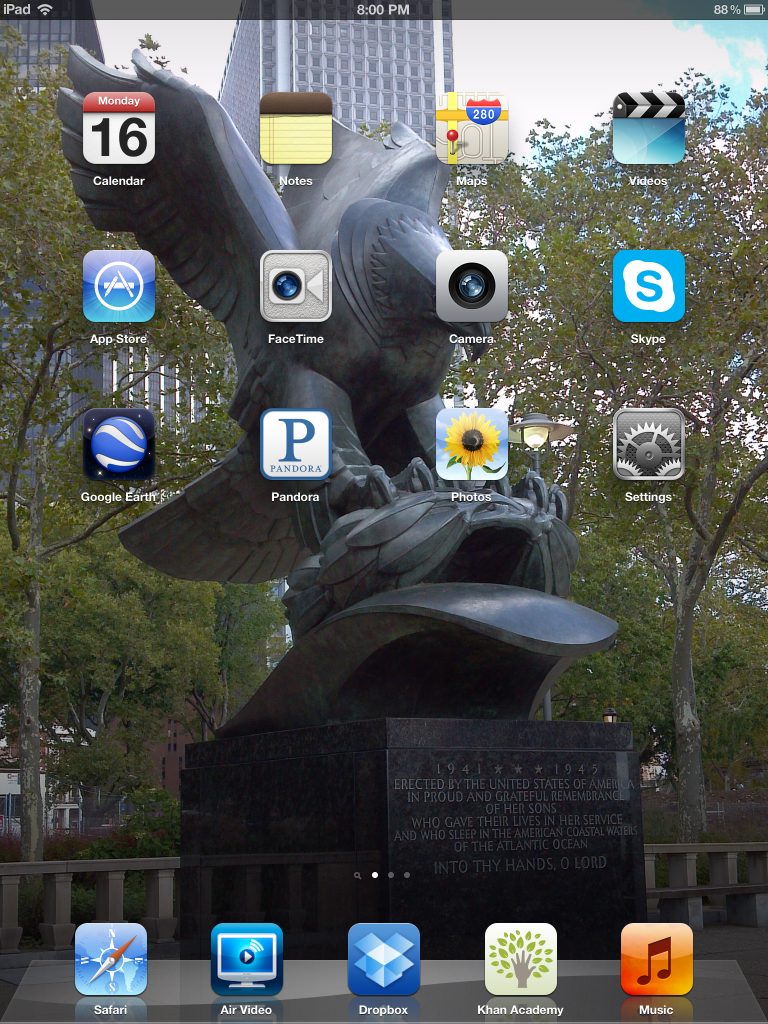
Overview
I don’t think anyone in their right mind thought Michigan had a chance to win this game outside of some true Michigan homers. I thought a blowout loss in which Alabama covers the spread was 75% likely (which is what actually happened) and a loss in which Alabama does not cover the spread was 25% (in which we would have played perfectly). This is not in hindsight; I bet accordingly. I’m surprised that MGoBlog had the score prediction as close as 22-15 or 31-20. I thought it was quite unrealistic that we stayed within two touchdowns; we simply don’t have the athletes. Probably 95% of Alabama’s starters in any position would displace the corresponding starter on our team, if not 100%. However, while the outcome of the game was no surprise, it was surprising how much we were outcoached.
Offense
At this point we have to accept that Denard is what he is, which a poor passer is. Early in the game (and even throughout), we had a few receivers open. He simply couldn’t hit them, whether he was in the pocket or when he was rolling out. Now the receivers by no means ran great routes, but if the ball was in a better place I have no doubt that something could have happened. Alabama stacked the box and dared Denard to throw, relying on their 5-star all world corners (who replaced the previous 5-star all world corners now in the NFL) to play man coverage as they often do. I don’t even think they tried super hard to sack Denard; it seemed to be a more contain the potential scrambling lanes approach (although our offensive line did a nice job pass blocking). So to be competitive, Denard absolutely had to make those throws, but couldn’t.
As far as running the ball and Al Borges’ refusing to run Denard, I’m not quite on the Borges poor play-calling in that regard. As mentioned, Alabama was stacking the box waiting for the run, daring us to pass. It would have been foolish to run Denard repeatedly against a brick wall and expect him to have a typical Denard rushing performance. It simply wasn’t there. Our run-blocking was pretty wretched against their defense. This is probably just a talent issue, as they are just too fast and too strong.
Where I have issue with Borges’ playcalling is not adjusting to the stacked box even when it was clear the downfield passing game just wasn’t working. We ran a bubble screen once to get something on the perimeter to Gallon, which went for 9 yards. However, we ran Vincent Smith and Thomas Rawls many times into the brick wall of that stacked box. I have no idea why there aren’t adjustments. The answer is not to run Denard lead draws, but inverted veers / other run concepts could have been tried. More bubble screens could have been tried. Something other than running into the brick wall could have been tried. I’m not a football expert by any means, but logically doing the same thing over and over and expecting a different result seems asinine.
Saban and Kirby Smart did exactly what you thought they would do. Stop the run first, force the other team to be one-dimensional, and let your athletes do what they do. It’s a shame that we made no real adjustments to this, at least to my untrained eye. This lesson needs to be learned before we play MSU, which is a poor (much poorer) version of Alabama’s defense.
Defense
Pretty much as expected- Alabama was able to blow our line off the ball and run at will. What was disappointing was that our back seven play and their lack of tackling skills. This could be a function of playing against three massive 5-star quality runningbacks, but the arm tackles were frightening. It seems confirmed that Martin and Van Bergen masked how bad they were last year, since they were able to occupy blockers and allow the back seven to flow a lot more unimpeded. We just could not get off blocks and make any tackles. Overall, the massive talent deficit showed way too clearly. We just don’t have the horses to compete with a team like this.
It’s hard to judge on passing defense, in my opinion. Because Alabama was able to run at will, they could basically surprise us with play action / random passes whenever. Case in point was the TD pass to the tight end in the goal line, where Ryan cheated expecting the run (not unreasonable). We really only gave up the bad TD pass when Avery slipped, but overall Alabama never had to pass when it really mattered.
Mattison unfortunately could not come up with a scheme to negate all these disadvantages and talent gap. I did expect a little bit better, but it’s hard to blame him with a new defensive line, Countess out, and some very questionable linebacker play. He got RPS’d (rock, paper, scissored) pretty hard a few times- for example, the aforementioned tight end TD pass on 1st and goal, as well as when he basically sent the house on a blitz when Alabama called that beautiful little screen which went over 20 yards for the first down. A rough day.
Special Teams
For once, this category seemed like a bright spot in Michigan football. Hagerup was convincing in a return to form as the starting punter, averaging over 50 yards I believe and booming a 62 yarder. Norfleet looks to be an extremely advantageous use of a scholarship and certainly seems primed to return at least a few kickoffs to the house over his career. The only caution I would have here is use better judgment when deciding to field a return or not. The new rules mean that a touchback is now at the 25 yard line, so he needs to gauge more accurately whether he is able to cross that mark or not. Wile looked fine in kickoffs, as again the new rules make touchbacks almost automatic. Gallon seemed steady (just as last year) in punt returns, and we didn’t get a chance to kick a field goal.
Silver Lining
Usual caveats about it was Alabama, they oversign / cheat, Saban is a god, we won’t face anyone like them during the regular season, Big Ten title is not lost, etc. etc.
Michigan now knows the level it needs to play at to be a national contender. We are not even close to there yet, but we were able to blood some of the younger guys against probably the best team in the country. Pipkens, Ross, Ojemudia, Norfleet, Funchess, etc. know the level they need to be at. They have played against the best, and now they have a foundation to build themselves to that level and be guides for the 2013 and 2014 classes to reach that level. I actually question strongly why we had our first team offensive line in still as long as we did; could have gotten some of the true freshmen experience since their redshirts have to be burned this year anyway.
With the recruits we have coming in, the future is still bright.
Miscellaneous
+ Holy shit Alabama talent levels- insane o-line, insane runningbacks, insanely fast defense, great secondary, etc. etc. It’s actually amazing how much production they lost from last year’s team without missing a single step. Forget Eddie Lacy, T.J. Yeldon is the real deal. That speed, size, vision, and refusal to go down is incredible. And Dee Milliner steps right back into starting cornerback and was incredible. Seems Alabama has a knack of signing 5-star talent that actually pans out, as opposed to other teams (Michigan- BWC, Kevin Grady, etc.). Maybe it’s just a function of signing much more 5-star talent in general.
+ Referees- yes they were bad. Blatant no PI when Milliner pushed our receivers out of bounds, overturning our PI that Gardner had, missing holding calls, etc. This sucked, but it certainly did not dictate the course of the game. Alabama let up a little bit; they could have easily stepped on the gas to compensate for more calls going our way.
+ Injuries- this part scares me. Countess and Lewan are massive losses, and no Brandon Moore basically assures we use 3 WR 2 RB sets (although Funchess could be one of the WR). I don’t have a problem with Countess being on kick coverage, as this coaching philosophy is to gamble and win and that means getting your best guys out there. Injuries happen- hopefully Blake is ok. However, leaving Lewan in at the end seemed pretty pointless (he was hurt in the last 5 min). Could easily put one of the backup freshmen who can’t redshirt anyway in to get some game experience. My only thought is that the coaches weren’t please with Lewan’s performance and wanted him to get more reps. I felt Lewan was exposed a little bit against a better defense than he’s ever faced before.
+ The Big Ten absolutely sucks. The SEC would rape the Big Ten. Here are the scores of all its games:
-
Minnesota 30 UNLV 27 Michigan State 17 Boise State 13 Northwestern 42 Syracuse 41 Ohio State 56 Miami (OH) 10 Ohio 24 Penn State 14 Illinois 24 W. Michigan 7 Nebraska 49 S. Miss 20 Wisconsin 26 Northern Iowa 21 Iowa 18 N. Illinois 17 Purdue 48 E. Kentucky 6 Indiana 24 Indiana State 17 Alabama 41 Michigan 14
While only Penn State and Michigan actually lost, the incredibly shitty results vs. MAC snacks and various other cupcakes is cause for incredible concern. The Wisconsin-Northern Iowa result is particularly troubling. I am from Iowa and used to live in Cedar Falls. The thought that a school that small and obscure in terms of football recruiting can come anywhere near a team like Wisconsin is insane.





